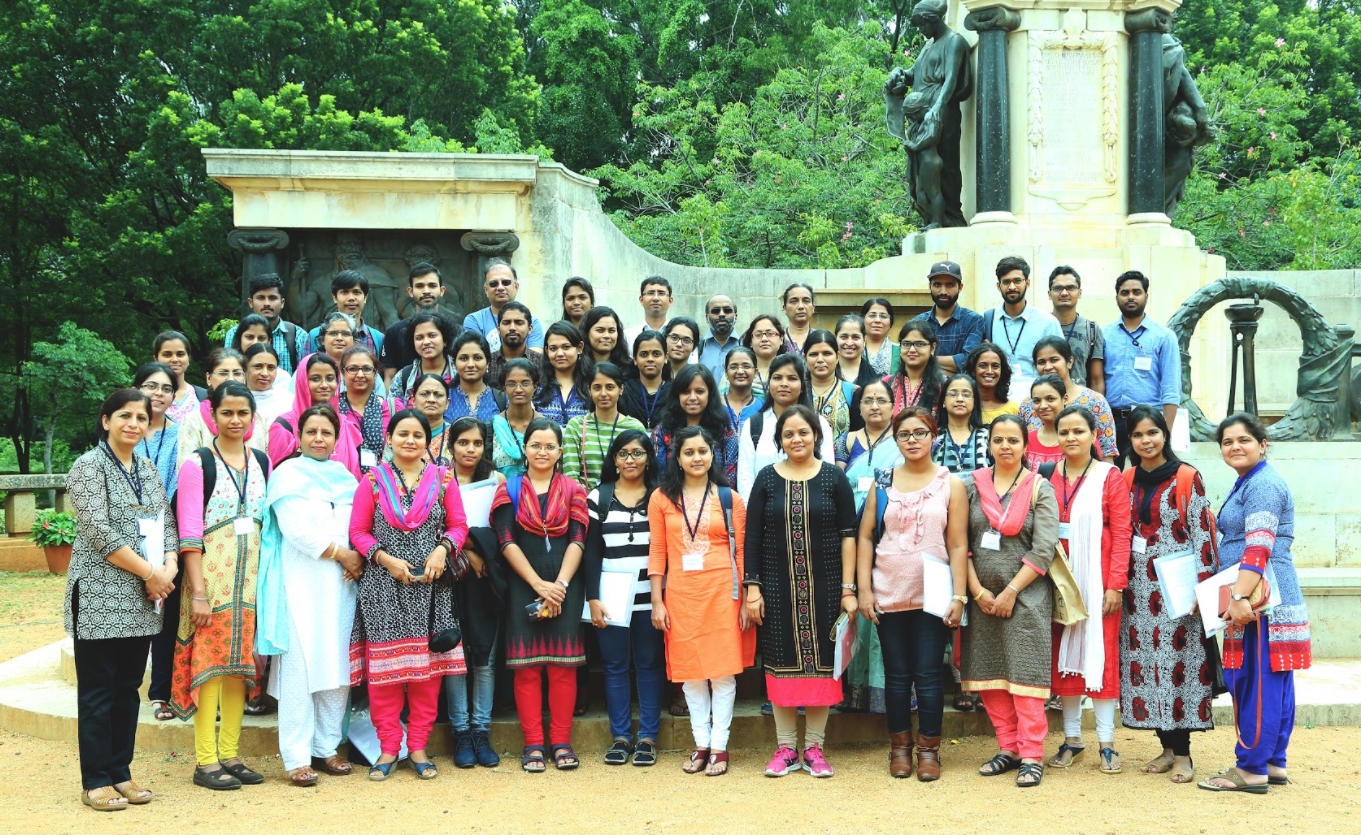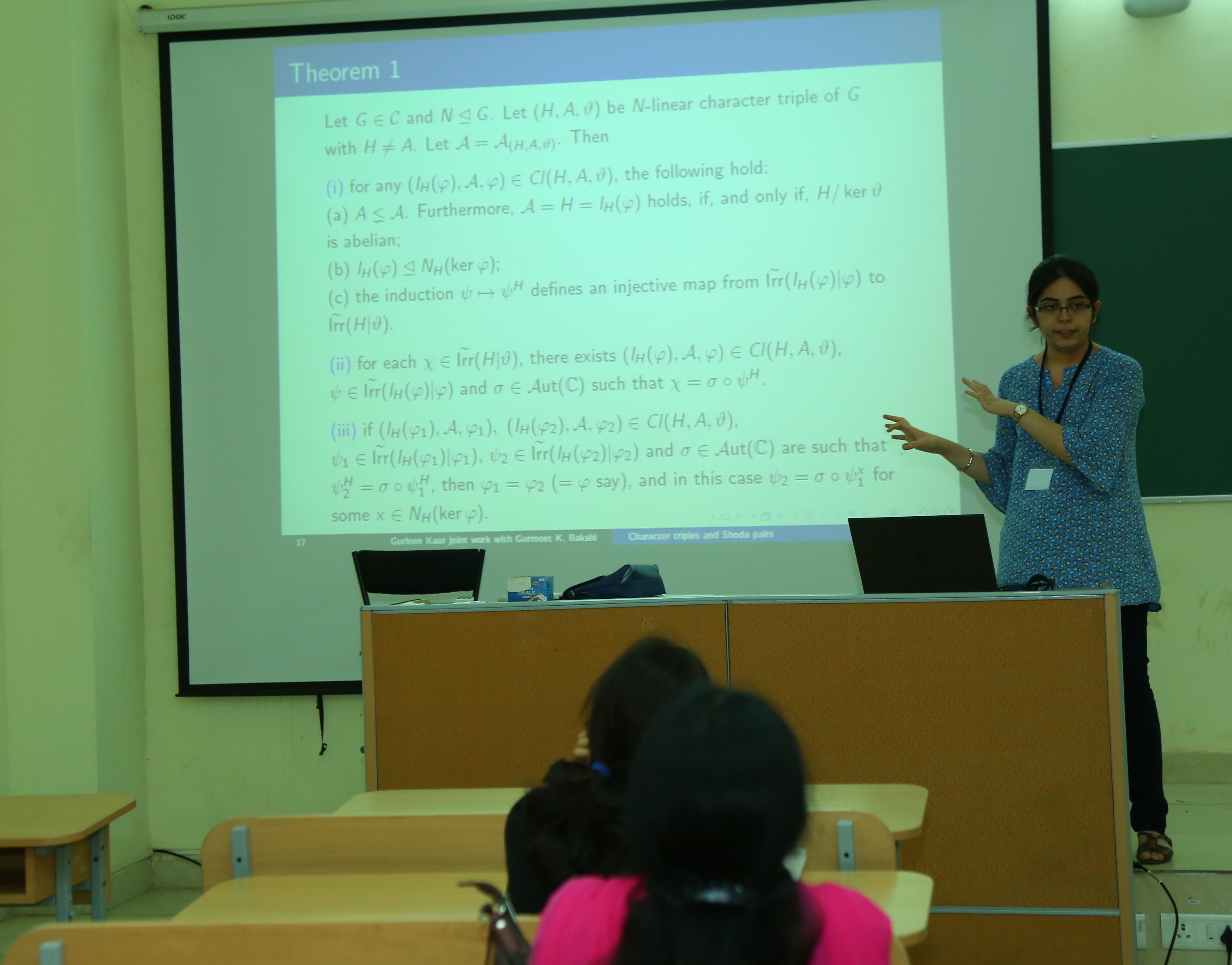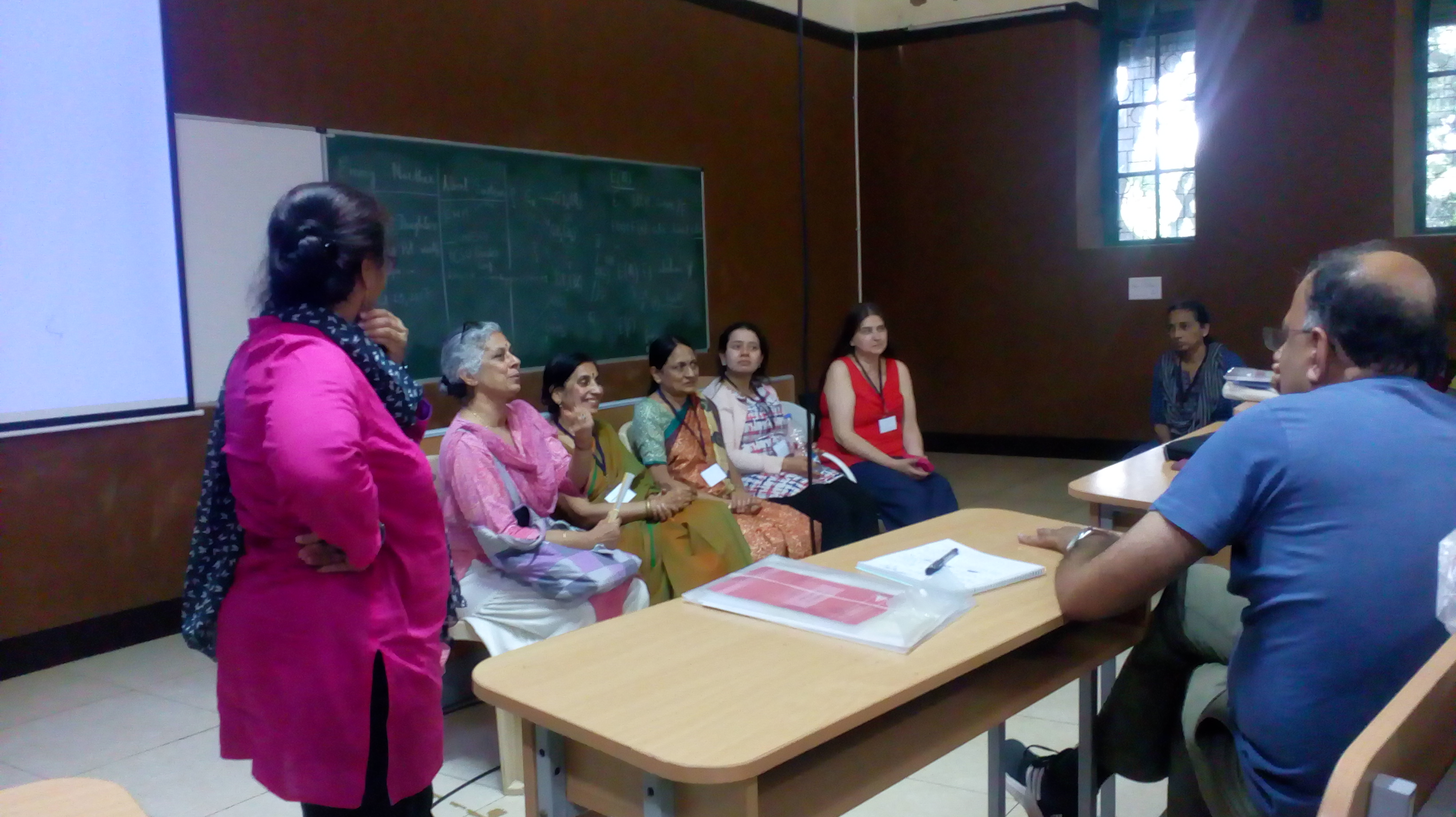
“It’s not that women are not ready for science – society is not ready for women, but projects this onto them,” said renowned mathematician Sujatha Ramdorai at a recent panel discussion at IISc titled ‘Women in Mathematics: Perspectives from Science and Mathematics’. The panel was organised as part of the three-day annual conference of the Indian Women in Mathematics (IWM 2017) from July 13-15, which saw participation from over 30 students and another 30-odd faculty members and postdocs from IISc and institutions across the country.
IWM annual conferences first began in 2012, and the aim of this year’s conference at IISc was to “to bring together women students, college and university teachers and early-career researchers with mathematicians, especially women mathematicians, working at the frontiers of mathematics, to exchange mathematical ideas and share their experiences.” Apart from providing a platform for established as well as upcoming mathematicians to present their work, it allows opportunities for professional networking among women mathematicians. The conference is funded by the National Board for Higher Mathematics and the Committee for Women in Mathematics, International Mathematical Union.
Ramdorai, an algebraic number theorist who is Canada Research Chair at the University of British Columbia, was the first Indian to win the ICTP Ramanujan Prize and one of the few women to receive the Shanti Swarup Bhatnagar Award. She was among the plenary speakers at IWM 2017, which included Kavita Telikepalli, who works on graph algorithms and computational complexity at TIFR Mumbai; Apala Majumdar, who works on mathematical modeling in materials science and industrial applied mathematics at the University of Bath, UK; and Usha Bhosle, who works on algebraic geometry, vector bundles and principal bundles. Bhosle retired from TIFR Mumbai and is a Raja Ramanna fellow at IISc.

IWM 2017 also saw invited talks by faculty members of different institutes (including mathematicians like Rukmini Dey from the International Centre for Theoretical Sciences, Bangalore and Radha R from IIT Madras), contributed talks and poster presentations by PhD students, postdocs and faculty members, and a mini-course for attendees on Spectral theory of normal operators by BV Rajarama Bhat of the Indian Statistical Institute-Bangalore Centre.
The aforementioned panel discussion, which took place on the first day of the conference, proved an icebreaker after a day of technical sessions and included conversations that extended to the experience of being a woman in mathematics. Five panelists – including Ramdorai, Majumdar, Krishna S Athreya of Iowa State University, USA, Šárka Nečasová from the Czech Academy of Sciences, Prague, and Indira Narayanaswamy from MS Ramaiah University of Applied Sciences, Bangalore – moderated by Geetha Venkataraman from Ambedkar University Delhi, shared their experiences in a lively discussion that ranged from managing children and a career to holding one’s own against hostile male colleagues.

While Narayanaswamy, who was the first woman to be Technology Director at Aeronautical Development Agency, spoke about the ‘leaky pipeline’ (the term referring to the process of women dropping out of science) and provided suggestions to address it, Athreya spoke about ‘impostor syndrome’ and how women shouldn’t let it stand in the way of achieving what they wanted to. Nečasová highlighted the role that other women professors have played in mentoring her, and Majumdar spoke about the Athena SWAN Charter in the UK that encourages institutions to work towards gender equality. Panelists as well as members of the audience shared their experiences of discrimination, with the strong sentiment that it was necessary to acknowledge that science had a diversity problem in order to be able to fully address it.
Pooja Singla, Assistant Professor at IISc’s Department of Mathematics and a member of the conference’s organising committee, works on representation theory of groups and algebras. She was one of the invited speakers, and says the session she found most relevant to her own work was Ramdorai’s plenary talk on residual Galois representations. In additional to the subject talks, she says she found the panel discussion at the end of day one helpful. “On a personal level, it was very inspirational. When I started my job, I also wanted to start a family. It was great to see examples of other senior female mathematicians who had managed both,” Singla says. She is the only woman member of faculty in her department of 24 staff.
Arundhathi Krishnan, a fifth-year PhD student at IIT Madras, says it was the first time she attended an IWM event, and is glad she made the journey from Chennai. She says that as the technical talks were on a range of topics at a fairly advanced level, and didn’t happen to include her line of research, the aspect of the conference she found most useful was the opportunity to meet other students, postdocs and faculty. “I got to meet PhD students from all over the country,” she says.
Krishnan, who works on functional analysis and operator theory, presented a poster on Day 2 of the conference. She says that it was nice to have people speak to her about her work, asking questions and making suggestions about new directions to explore. As someone just about to complete her PhD, although networking at the conference didn’t throw up any direct work opportunities, she says, “it gave me some ideas about what to do next.” Being able to see so many women mathematicians talk about their work – a rare occurrence at most conferences – was a welcome change. “Overall, I think it was a nice experience,” she says. “I would definitely attend an IWM event again.”




